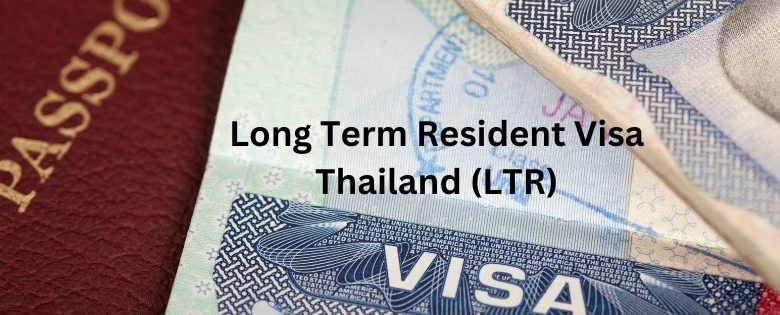The Long-Term Visa Playbook: How to Legally Stay in Thailand for Years

Breaking Free from Tourist Status
Thailand’s immigration system can feel like an intricate puzzle, but with the right strategy, you can legally establish long-term residence. This playbook reveals professional Long term visa Thailand techniques used by successful expats to maintain continuous legal status for years – sometimes decades – in the Kingdom.
The Foundation: Understanding Visa Classes
Tourist Visas (TR)
-
60-day entry (extendable by 30 days)
-
Multiple-entry options available
-
Maximum 180 days/year enforced at many consulates
Pro Tip: The Penang consulate remains the most lenient for multiple tourist visas.
Non-Immigrant Visas (The Gateway to Long-Term Stays)
-
Category O: Retirement, family, volunteer
-
Category B: Business and work
-
Category ED: Education
-
Category M: Media/religious work
Choose (and Leave)
Another layer of privilege lies in choice.
Many expats move not because they must—but because they can. They seek lifestyle upgrades, new scenery, or professional opportunities. And if things don’t work out? Most can leave and return home without serious consequences.
Contrast that with the experience of refugees, asylum seekers, or economic migrants, for whom crossing a border may be the last, most dangerous option. They often face restrictive immigration systems, language barriers, and social stigma—without the safety net many expats enjoy.
To move freely, to fail safely, and to leave when it gets hard—that’s not a universal right. It’s a luxury.
Advanced Strategy: The Visa Ladder System
Smart expats progress through visa tiers:
-
Entry Level: Tourist Visa or Visa Exemption
-
Intermediate: Non-Immigrant Visa (typically ED or O)
-
Advanced: Annual Extensions
-
Elite: Permanent Residency (after 3+ consecutive years)
Case Study: Markus, 42, used this path:
-
2018: Entered on tourist visa
-
2019: Transitioned to ED visa (Thai language)
-
2020: Switched to Non-O (volunteer)
-
2021: Obtained work permit through boutique consultancy
-
2023: Approved for LTR visa
The Money Factor: Financial Strategies for Visa Approval
Bank Account Mastery
-
Open accounts at multiple Thai banks
-
Maintain minimum balances for different visa requirements
-
Use fixed deposits to show financial stability
Income Verification Workarounds
-
For retirement visas: Use combination method (bank deposit + income)
-
For marriage visas: Show overseas income with embassy letters
-
For Elite visas: Structure payments to maximize benefits
Immigration Interview Tactics
Common Questions:
-
“Why do you want to stay in Thailand?”
-
“How do you support yourself?”
-
“Where do you live?”
Winning Answers:
-
Emphasize contributions to Thai society
-
Show documentation of local ties (lease, bills, memberships)
-
Demonstrate basic Thai language ability
The Bureaucracy Hack: Working the System
-
Timing is Everything
-
Apply for extensions mid-week, mid-month
-
Avoid holiday periods
-
-
Location Strategy
-
Some immigration offices are more lenient than others
-
Consider establishing residency in expat-friendly provinces
-
-
The Paperwork Dance
-
Always bring original + 2 copies
-
Prepare documents in both English and Thai
-
Use color coding for easy reference
-
When Things Go Wrong: Damage Control
Common Issues:
-
Overstay (even 1 day can cause problems)
-
Denied extensions
-
Changed visa requirements
Solutions:
-
Have a backup visa option ready
-
Maintain good relations with a visa agent
-
Keep an emergency fund for visa issues
The Long Game: Pathways to Permanent Residency
Elite Visa Fast Track
-
5-year Elite visa holders can apply for PR after 3 years
Traditional Route
-
3 consecutive years on extensions
-
Demonstrate Thai language ability
-
Show tax payments and social contributions
Insider Tip: Volunteering with registered charities can strengthen your PR application.
Your 12-Month Visa Roadmap
Month 1-3:
-
Enter on proper tourist visa
-
Open bank accounts
-
Research long-term options
Month 4-6:
-
Transition to Non-Immigrant visa
-
Begin building local ties
-
Start language studies
Month 7-12:
-
Apply for first annual extension
-
Establish proof of residence
-
Network with visa professionals
Conclusion: Playing the Long Game
Staying long-term in Thailand requires viewing visas as an evolving strategy rather than one-time transactions. By understanding the system’s nuances and planning several steps ahead, you can maintain continuous legal status while enjoying everything Thailand offers.
As veteran expat Simon G. advises: “Treat your visa status like a garden – it needs regular attention and care, but the rewards are worth it.”
Ready to begin? Your first move is choosing the right entry point into Thailand’s visa ecosystem. Which strategy will you implement first?



